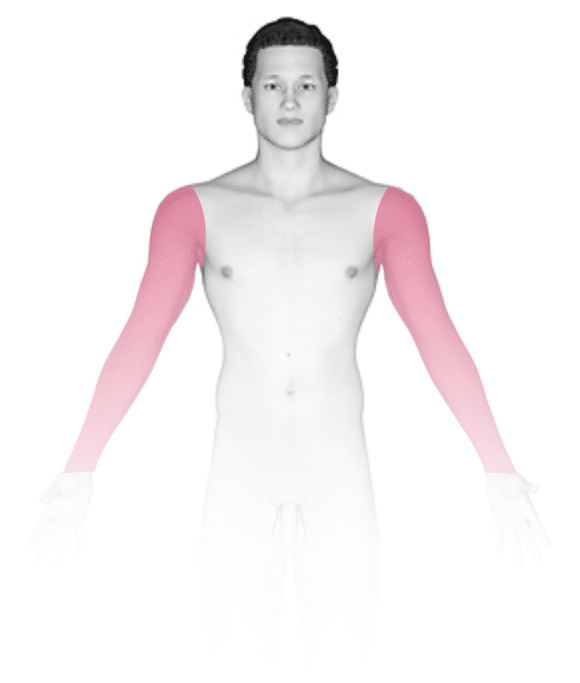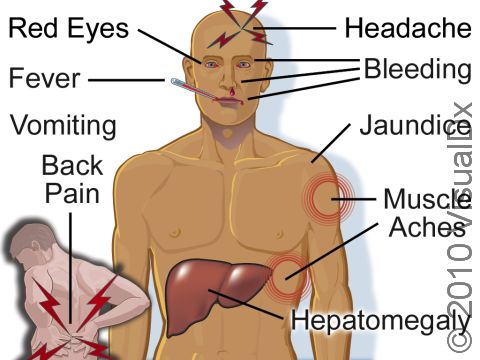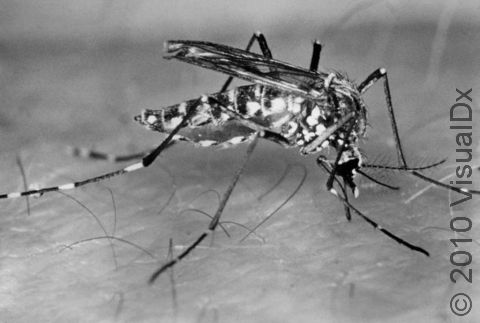Yellow Fever
Yellow fever is a viral illness caused by the bite of a mosquito carrying the yellow fever virus. Yellow fever received its name from the yellow discoloration (known as jaundice) to some patients’ skin. Yellow fever can cause only mild illness – with only fever and headache – or it can cause a much more serious illness, with damage to every major organ system (heart, kidneys, liver) and eventually massive bleeding (hemorrhage) due to liver failure. The most severe infections are up to 50% fatal, though only a small percentage (15%) of cases are severe. Most people recover from yellow fever. The infection is only passed from mosquito to human; there is no human-to-human transmission.
Who's At Risk?
Yellow fever is very rare in the United States, but it is fairly common (endemic) in South America and Africa. People at increased risk for getting yellow fever include:
- Travelers to (and inhabitants of) endemic areas.
- Travelers to (and inhabitants of) tropical rain forests.
- Anyone in these areas who is unvaccinated.
- Anyone in these areas working outdoors at dawn or dusk, or those who sleep without a mosquito net.
There is a risk that a traveler to an endemic area could return with yellow fever, and while person-to-person contact is not contagious, an infected traveler could reintroduce yellow fever back into the local mosquito population.
Signs & Symptoms
Mild illness includes the following:
- Fever
- Headache
- Pink eye (conjunctivitis)
Severe illness includes the following:
- Fever
- Chills
- Vomiting
- Headache
- Muscle aches
- Lower-back pain
- Yellow color to the whites of the eyes (jaundice), caused by liver failure
- Lack of urine output, caused by kidney failure
- Internal bleeding caused by liver failure (hemorrhage)
- Death
Self-Care Guidelines
To prevent yellow fever, get vaccinated before you travel. Additionally, when in endemic areas:
- Avoid being outdoors or unprotected at dawn and dusk, which is when mosquitoes infected with yellow fever tend to bite humans.
- Wear neutral-colored long-sleeved shirts and pants, and consider coating your clothes with a long-lasting insecticide (eg, permethrin) before you go outdoors.
- Sleep under a mosquito net.
Note: In the case of severe yellow fever, taking fever-reducing medicines such as acetaminophen, aspirin, and ibuprofen can be very harmful. Do NOT take these or any other medications without discussing with your doctor.
Treatments
There is no specific treatment for yellow fever. Your doctor will treat your symptoms as they arise with fever reducers, pain medicines, antibiotics if you develop other infections, and medications to control bleeding (including blood transfusion), as necessary.
There is a vaccine for yellow fever that all appropriate travelers to endemic areas should receive. The vaccine is not appropriate for egg-allergic people, infants, pregnant women, elderly people, and immunocompromised people.
Visit Urgency
For any illness with high fever and headache, consult your doctor. Be sure to advise him/her of your travel history and history of immunizations. If you develop a yellow tint to your eyes (this may be a sign of jaundice), discuss this with the doctor.
Last modified on October 6th, 2022 at 3:13 pm

Not sure what to look for?
Try our new Rash and Skin Condition Finder

